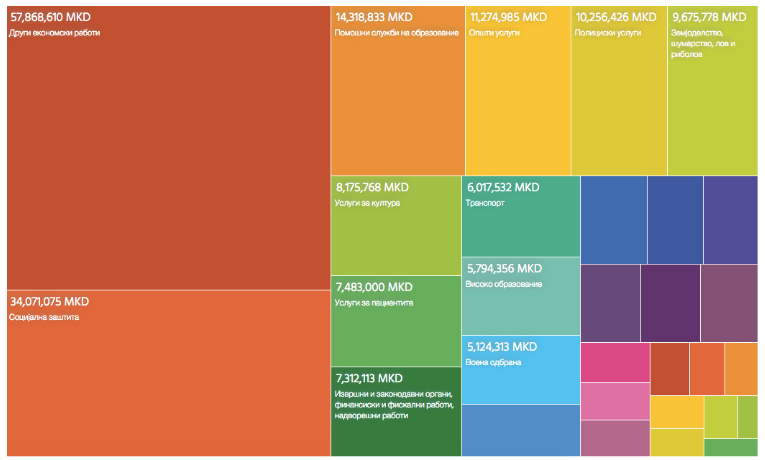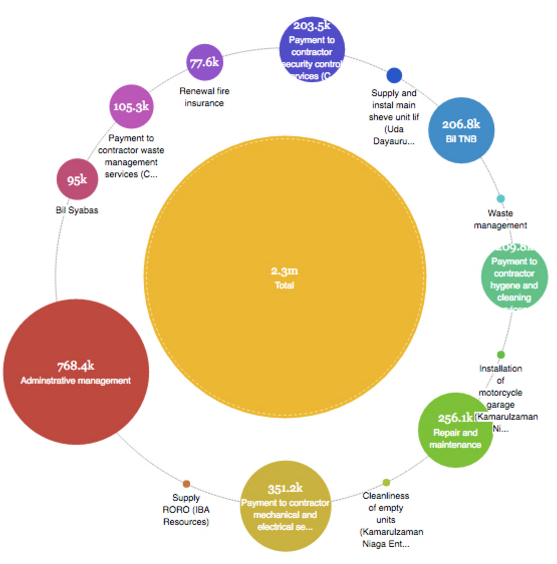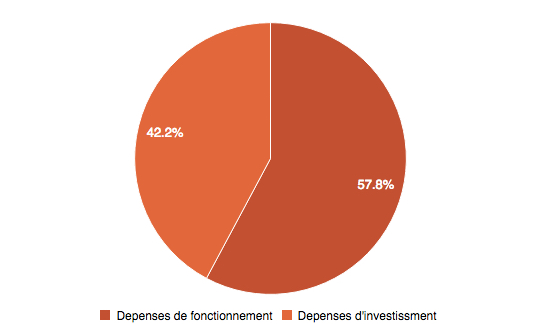OpenSpending is one of Open Knowledge International’s current projects. It is a free and open platform for citizens looking to track and analyse public fiscal information globally.
While the OpenSpending team was busy revamping the platform over the last year we have been fortunate to have a community of users actively involved in testing the new tools. Here we highlight the experiences of three partner civil society organisations collecting and structuring budget and spending data and using OpenSpending tools to present this data to the public. It also gives an insight into the challenges these organisations faced in data collection and solutions they employed to reduce data barriers.
 Public Domain icons by David Merfield
Public Domain icons by David Merfield
Sinar Project in Malaysia: Open Spending Data in Constrained Environments
Sinar Project is an initiative that uses open source technology and applications to make important information accessible to the Malaysian people. Sinar has been working to engage disenfranchised communities in the budget process, in order to hold the government accountable for budgets that respond to the needs of citizens.
Over the course of 2016, the team at Sinar has been working to obtain and to prepare over 100 datasets for upload on OpenSpending. So far, they uploaded over 40 datasets on the platform. Amongst others, the team published the 2014 allocated budgets for public housing maintenance in Kota Damansara township. Data uploaded and visualized on OpenSpending was shared with the community’s leaders for review. This gave the community the opportunity to compare and contrast how planned budget allocation matched up with how funds were actually spent. The community leaders identified potential misuse of funds in some budgets lines and are continuing to conduct investigations and collect evidence to expose poor management of public finances in Kota Damansara. Data and visualizations are available on OpenSpending Viewer.
It wasn’t easy for the team to obtain such data. First, they had to file a Freedom of Information (FOI) request to the state owned Selangor Housing and Property Agency. They also went into meetings with the authorities to get an indepth understanding of the data. Sinar continuously faces challenges in data collection of budgets at all levels of government. For example, for previous years, budgets for the federal government are not publicly available and there is no FOI law applicable to the federal government. There are roadblocks in data collection for state governments and for city councils as well.
“…to engage disenfranchised communities in the budget process…”
In spite of the roadblocks and reluctance of authorities to collaborate, the team at Sinar have filed FOI requests to the Selangor state government and Petaling Jaya city council to get access to fiscal budgets. They have also filed FOI requests to the management company responsible for the Kota Damansara public housing, obtaining access to data on how MYR 5 million (USD 1.2 million) were allocated to repair railings for all housing blocks and data on allocated budgets for public housing maintenance in 2014 and 2015.
Moving forward, Sinar Project is planning to continue using OpenSpending to:
- Address budget priorities at all levels of government
- Visualize allocated budgets and compare to official government policies and implementation of government programmes
- Make use of evidence based budget data and various survey results to hold the decision makers at all levels accountable
- Advocate for transparency in open data, promote better access to government budgets data, and push for better open data policies.
Metamorphosis Project in Macedonia: Revamp the current Follow the Money website
Metamorphosis Foundation is a civil society organization from Macedonia, having been active for more than 15 years. Several years ago they started collaborating with Open Knowledge International to implement the “Open Data Civil Society network” project, with the aim of improving the capacity of civil society organizations in the country. Moreover, they established School of Data Macedonia in order to promote an open agenda.
In 2012, Metamorphosis Project in Macedonia developed their Follow the Money website to familiarise citizens with the fiscal policies of local authorities. However, while budget information was presented on the site, over time it has lost its popularity. In 2015, the School of Data fellow conducted in-depth user research to better understand why the site wasn’t being used and how it could be improved to better serve its potential user communities. Ultimately, the team at Metamorphosis decided to revamp the website.
“…improving the capacity of civil society organizations in the country.”
They focused on collecting, cleaning and preparing budget data from all 80 municipalities as well as the country’s central budget. Take a look at the planned Central Budget for 2016 made available on OpenSpending:
 For the above visualization, click this link. Explore years 2010 to 2016 at this link.
For the above visualization, click this link. Explore years 2010 to 2016 at this link.
Like with the Sinar project, data collection was incredibly challenging. Budget data for most municipalities was “locked” in PDFs or not published at all. Instead of trying to get the data from the source, Metamorphosis partnered with other CSOs in the country that work closely with the municipalities who were willing to share the data that they had already collected.
Another issue they are facing is the lack of granularity of the published data and official institutions unwilling to provide more detailed data. Finally, while the central government budget was made available in machine readable format, it only included the economic budget classification, which identifies the type of budget and expenditure incurred, for example, salaries, goods and services, transfers and interest payments, or capital spending. Since the team needed the functional classification (expenditure according to the purposes and objectives for which they are intended) for the website, they had to scrape it from the website of the Ministry of Finance. The website includes functional classification data, since this is how the team found most useful to display data to users.
In the next few months, the team is working to identify funds to launch the revamped version of Macedonian Follow the Money website with embedded visualizations created on OpenSpending, and continue updating their data on the platform.
AfroLeadership in Cameroon: Open Local Budgets
AfroLeadership is a civil society organization in Cameroon, founded in 2007 and committed to the promotion of open data and civic technologies for governance, transparency and citizen participation. For several years, AfroLeadership has been promoting the use of a financial management information system in local governments, in order to improve budget transparency, accountability and public participation to budgeting. The adoption of the Financial Management Information System by several councils aims at improving budget reliability, budget execution and the ratio of budget reports to supreme audit institutions (SAI).
“…to bring budget information to citizens and CSOs in an accessible and open way…”
The Cameroon Open Local Budgets (COLB) project, launched in 2016, seeks to fight corruption, improve local accountability and ensure effective service delivery by collecting and publishing all 374 (the number of councils in Cameroon) approved budgets and accounts for all local authorities in Cameroon on OpenSpending. This project is a continuation of the organisation’s effort to bring budget information to citizens and CSOs in an accessible and open way, and engage them in public and local affairs.
The goal of the current OpenSpending Cameroon pilot phase is to upload 50 data sets for 2015 budget reports. For example, uploaded data on Cameroon’s Dschang council looks at functional expenses versus investment expenses, while a drill down into these categories lets users explore the expenses for each budget category.
The AfroLeadership team also faces challenges in data collection. Even if the deadline for 2015 budget reports and account production was at the end of May of this year, collection of these accounts has been more difficult than expected. Audit Bench of the Supreme Court of Cameroon has stressed the fact that less than 10% of budgets reports are received at their desk each year.
To address data collection challenges, AfroLeadership has organized information workshops to present to diverse stakeholders (Mayors, Supreme Audit Institutions, Civil Society Organisations, Journalists, etc.) the necessity of involving citizens in the budget cycle. Also, AfroLeadership has invited its institutional partner on this project, the national community driven development program (PNDP), to help collect approved 2015 budgets reports and accounts. AfroLeadership is currently in touch with the Ministry of Finance to explore opportunities in improving budget report collection in local governments.
All these organizations have been involved in upload training sessions on OpenSpending and now that the platform is available in Alpha, they are working to publish the data to the larger public through OpenSpending.
To browse existing datasets and to upload your data, visit OpenSpending. For questions, OpenSpending team is available via OpenSpending discussion forum, on Gitter.im in the OpenSpending chat room, or on the OpenSpending issue tracker.
Open Spending Community lead










